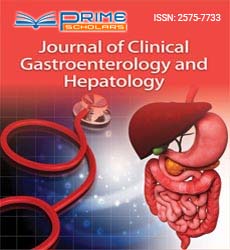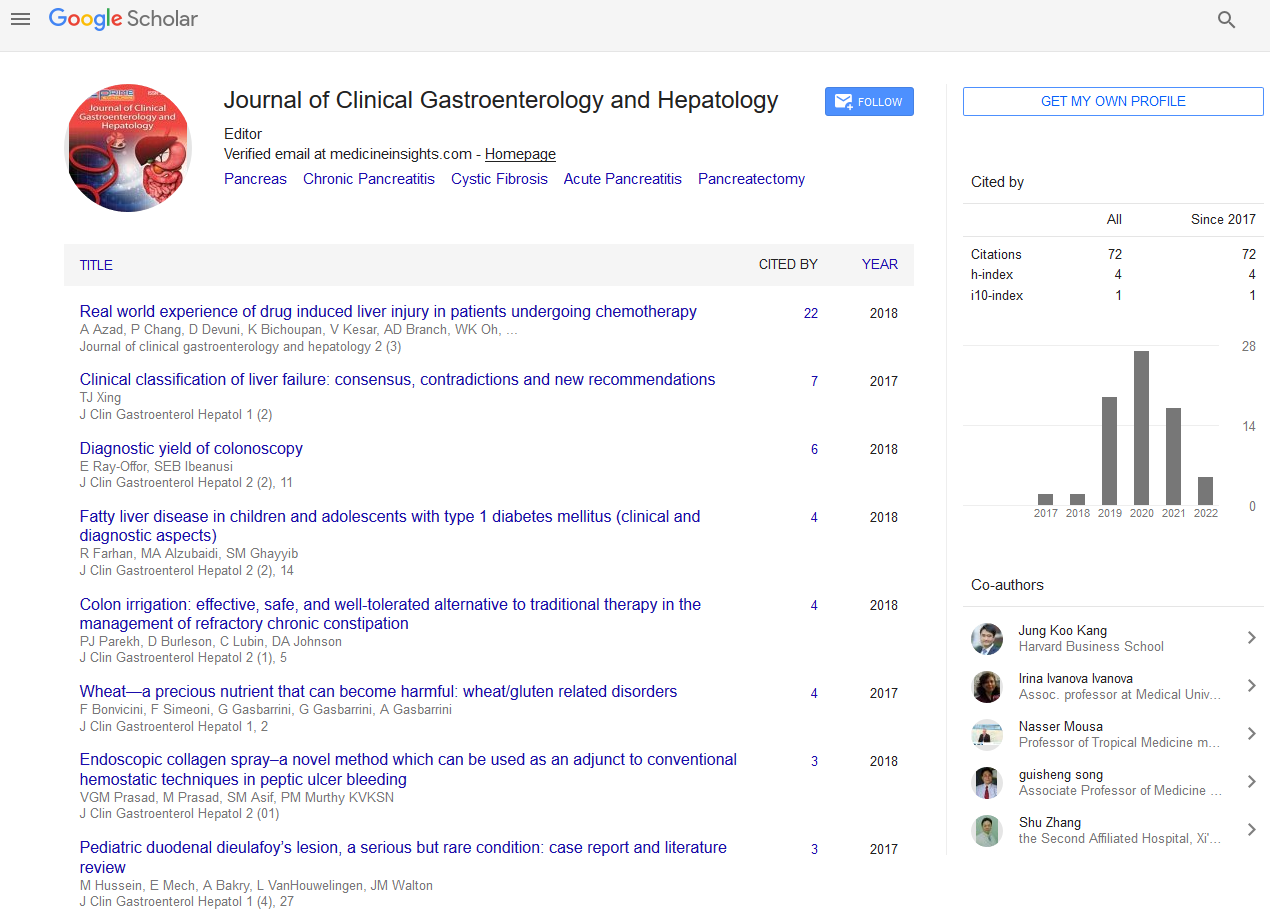Commentry - (2024) Volume 8, Issue 2
Constipation: Understanding the Discomfort and Seeking Relief
Huang Ming*
Department of Gastrointestinal System, Wuhan University, China
*Correspondence:
Huang Ming,
Department of Gastrointestinal System, Wuhan University,
China,
Email:
Received: 01-Apr-2024, Manuscript No. IPJCGH-24-19676;
Editor assigned: 03-Apr-2024, Pre QC No. IPJCGH-24-19676 (PQ);
Reviewed: 17-Apr-2024, QC No. IPJCGH-24-19676;
Revised: 22-Apr-2024, Manuscript No. IPJCGH-24-19676 (R);
Published:
29-Apr-2024, DOI: 10.36648/2575-7733.8.2.15
Description
Constipation, often characterized by infrequent bowel
movements or difficulty passing stool, is a common
gastrointestinal complaint affecting people of all ages. While
occasional constipation is normal and usually resolves on its
own, chronic constipation can be disruptive to daily life and may
indicate an underlying health issue. Understanding the causes,
symptoms, and management of constipation is essential for
promoting digestive health and well-being. One of the primary
factors contributing to constipation is inadequate dietary fiber
intake. Fiber plays a crucial role in promoting regular bowel
movements by adding bulk to stool and facilitating its passage
through the digestive tract. A diet lacking in fiber-rich foods such
as fruits, vegetables, whole grains, and legumes can increase
the risk of constipation. Increasing fiber intake through dietary
modifications or supplementation is often recommended
as a first-line approach to managing constipation. Hydration
is another key factor in maintaining regular bowel function.
Adequate fluid intake helps soften stool and promote bowel
movements. Individuals who do not consume enough fluids,
especially water, may experience dehydration, which can
contribute to constipation. Ensuring adequate hydration by
drinking plenty of water throughout the day is essential for
supporting healthy digestion and preventing constipation. Lack
of physical activity can also contribute to constipation. Regular
exercise helps stimulate bowel motility and promotes the
rhythmic contractions of the intestines necessary for efficient
digestion and elimination. Leading a sedentary lifestyle or
prolonged periods of immobility, such as during bed rest or longdistance
travel, can slow down bowel movements and increase
the risk of constipation. Incorporating regular physical activity
into daily routines, such as walking, jogging, or yoga, can help
alleviate constipation symptoms and promote overall health.
Certain medications and medical conditions can also contribute
to constipation. Medications such as opioids, anticholinergics,
and certain antidepressants can slow down bowel motility and
lead to constipation as a side effect. Chronic health conditions
such as irritable bowel syndrome (IBS), hypothyroidism,
diabetes, and neurological disorders can also affect bowel
function and contribute to constipation. Managing underlying
maedical conditions and adjusting medication regimens under
the guidance of a healthcare professional may help alleviate
constipation symptoms. In addition to dietary and lifestyle
factors, psychological and emotional factors can also influence
bowel function. Stress, anxiety, and depression can disrupt the
normal functioning of the digestive system and contribute to
constipation. Practicing stress-reduction techniques such as
mindfulness, relaxation exercises, and cognitive-behavioral
therapy can help alleviate constipation symptoms and promote
overall well-being. When it comes to managing constipation,
lifestyle modifications are often the first line of defense. In
addition to increasing fiber intake, staying hydrated, and
engaging in regular physical activity, establishing a regular
bowel routine can help promote regularity. Setting aside time
each day for a bowel movement, preferably after meals when
the digestive system is most active, can help train the body
to develop healthy bowel habits. Over-the-counter laxatives
may be used occasionally to relieve constipation symptoms,
but they should not be relied upon as a long-term solution.
Prolonged use of laxatives can lead to dependence and may
worsen constipation over time. If lifestyle modifications and
over-the-counter remedies are ineffective, it is important to
consult a healthcare professional for further evaluation and
management.
Acknowledgement
None.
Conflict Of Interest
The authors declare that they have no conflict of interest.
Citation: Ming H (2024) Constipation: Understanding the Discomfort and Seeking Relief. J Clin Gastroenterol Hepatol. 8:15.
Copyright: © 2024 Ming H. This is an open-access article distributed under the terms of the Creative Commons Attribution Li�cense, which permits unrestricted use, distribution, and reproduction in any medium, provided the original author and source
are credited.

